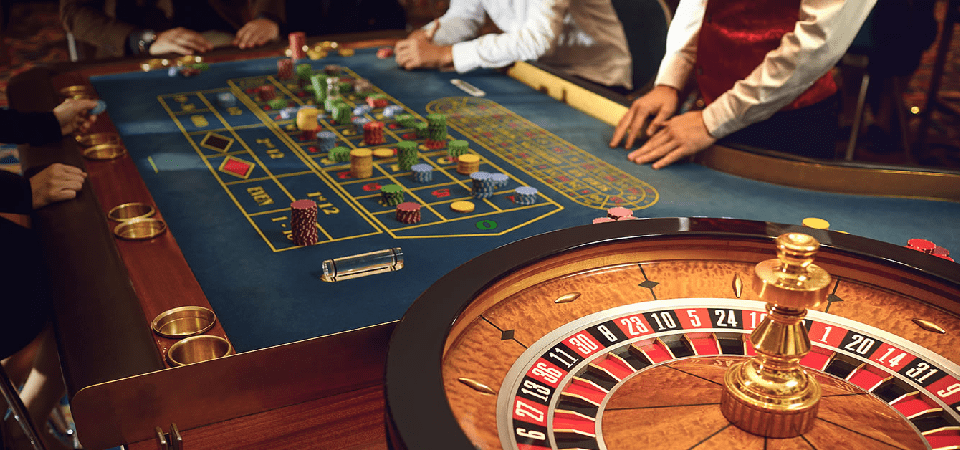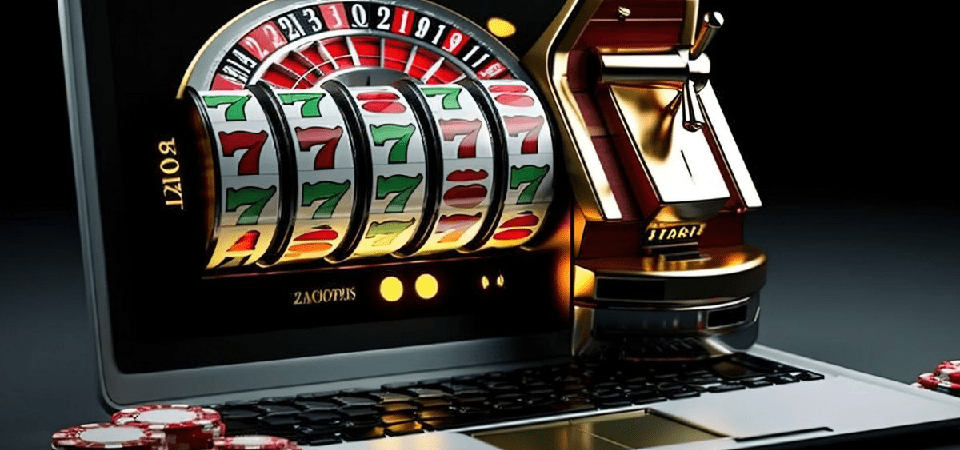


Three Basic Strategy Charts for Blackjack That New Players Should View
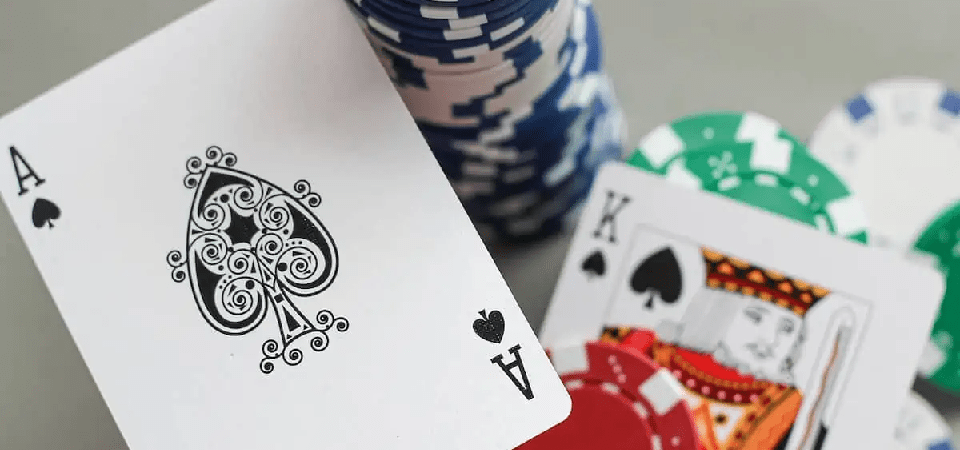
Three Basic Strategy Charts for Blackjack That New Players Should View
What comes to mind when you hear the term "blackjack"—a 21st-century hand or a skull and crossbones flag? If the latter makes your heart race, it might be time to start playing blackjack.
Blackjack, one of the most played casino card games worldwide, originated from Vingt-et-un, a French card game that was brought to America in the 1700s and means "21." When 21 was first played in the United States, an additional bonus was awarded when an ace was accompanied by a black jack, which is a jack of spades or clubs. The name stuck around even if the bonus finally vanished.
Read our introduction to basic blackjack strategy to find out more if you're interested in learning how to play blackjack online or in Las Vegas.
Basics of Playing Blackjack
The appeal of blackjack as a casino game lies in its straightforward yet thrilling gameplay. The house's substantially higher odds of winning are reduced and players have a higher chance of winning when you play it at an online casino. But if you play within the rules, you can improve your chances even further by using the proper basic blackjack strategy.
You compete with the dealer on a simulated blackjack table when you play online casino blackjack. Your goal is to outscore them or come closest to 21 with your cards. You have a "bust" and lose the hand if you are over 21. The face cards in blackjack are worth ten points, the ace might be valued one or eleven, and the remaining cards have their respective numerical values.
The following are some fundamental blackjack rules:
- The highest hand in the game is blackjack, which consists of a face and an ace card.
- Depending on the kind of blackjack being played, the dealer deals two cards from a single deck, double deck, or more decks to each player after the players place their bets. Face down is one of the dealer's cards. We refer to this as the "hole card."
- Players will be offered a "insurance bet" if the dealer's face-up card is an ace. This is a side wager that protects players from the dealer's hole card being a face card, which would give them a winning blackjack hand.
- Blackjack insurance odds pay out at a 2:1 ratio, and the player's maximum wager is often half of their initial wager. If the dealer has blackjack, this could provide the blackjack players a chance to break even on the hand.
- With the exception of insurance bets and player blackjack hands, all player bets are forfeited in the event that the dealer has blackjack. In the latter scenario, there is a "push" or tie and no money is lost or paid out.
- For blackjack, the house edge—the portion of the game that a casino would profit from over time—is rather small. The house edge for a novice player is approximately 2%, meaning that for every $100 you have in your bankroll, the casino will take $2 away from you each game.
- Steer clear of card counting, which is not only prohibited by law but also against blackjack regulations. Blackjack might be a favorite choice for card counters, so be on the lookout for card sharks.
Player decisions to be aware of include:
- Stand: The player does not accept another card from the dealer; instead, they remain where they are with their cards.
- Hit: One or more cards are taken by the player. They forfeit their hand if they are older than 21.
- Double down: The player receives one extra card in addition to doubling their wager.
- Split: A player may divide their initial two cards into two hands and play each of them if they have equal point values, for as two 4s or two kings.
- Surrender: Rather than playing against a hand that appears stronger, players may elect to "late surrender," or give up a weak hand on their first two cards, in certain variants of the game. In cases of surrender, the player receives half of their wager back.
The remaining players win if the dealer hits and goes bust (over 21 points). The player with the greater hand total points wins if the dealer stays put or does not go broke. Money is neither lost nor paid in the event of a tie or push.
Hard Hands Chart
Blackjack hands known as "hard hands" are those without an ace or those with an ace that needs to be counted as one in order to keep the hand from going above 21. They are regarded as "hard" because the point total is fixed in the absence of the ace's flexibility, which allows it to be counted as either 1 or 11. For example, a 3 and a king will always equal 13 points, while a 9 and a 6 will always equal 15 points. You're not going to have much leeway in these situations. You are bust if you choose to hit and get a face card (10 points).
Since there is no chance of going over if you are dealt a face card, it is less concerning if your hard hand totals four, five, six, or eight. It makes sense to double down if your hand totals nine and the dealer's up card is a 3, 4, 5, or 6. This increases your odds of winning. Unless the dealer's up card is an ace or a 10, you should always double down if your total is 10 or 11.
For advice on handling strong hands, refer to the blackjack strategy chart below.
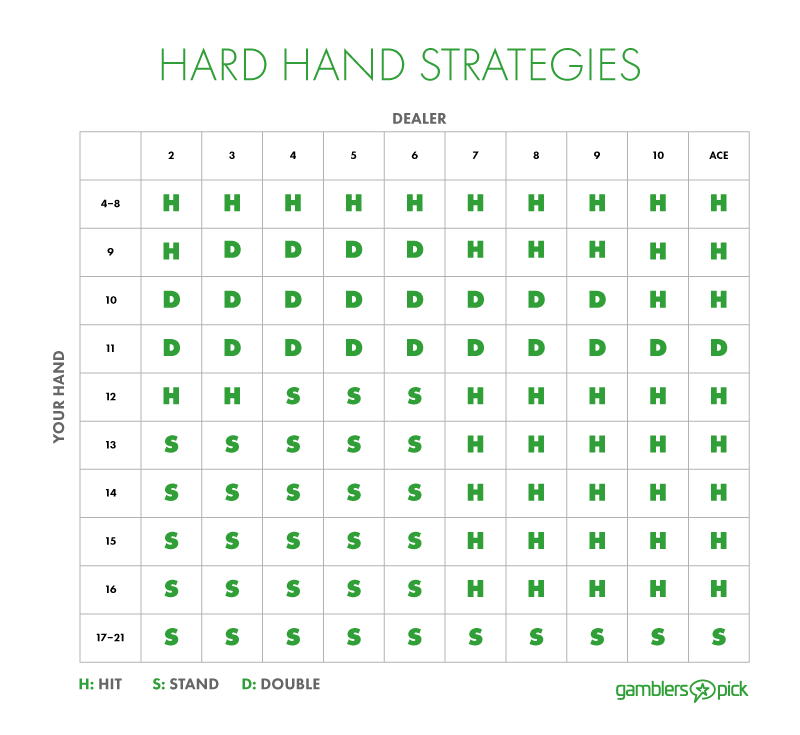
Chart for Soft Hands
An ace, worth one or eleven points, indicates a soft hand. You cannot exceed 21 with your initial hit when using this point flexibility. One reason why players desire for easy hands is the knowledge that they won't lose their wager instantaneously.
There are numerous situations in which you should hit with a soft hand. For instance, if you hold an ace and a 2 for a soft 13, you should never double down until the dealer's card is a 5 or 6. Regardless of the dealer's card, you should always stand if you have a soft 19 or 20. View further examples of soft hand basic strategy below.
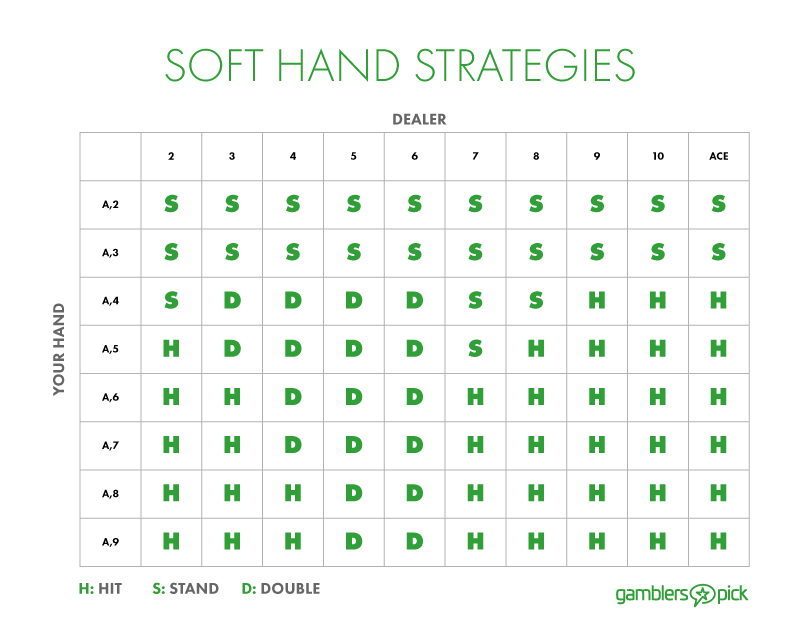
Split Hands Chart
You can divide pairs in the majority of online blackjack varieties. You can choose to split the cards to create two new hands and then place a wager on each hand when you are given a pair of the same cards (two jacks, two 3s, two aces, etc.).
In this instance, you wager twice on each hand in an amount equal to the initial wager. Playing both hands normally would mean standing or drawing new cards. If you hold two 5s, you should definitely double down unless the dealer is presenting an ace or a 10.
Regardless of the dealer's hand, if you have two 10s, it makes sense to stand rather than split because it is improbable that you will beat your total of 20 with either new hand. For basic strategy, see more split hand playing decisions below.
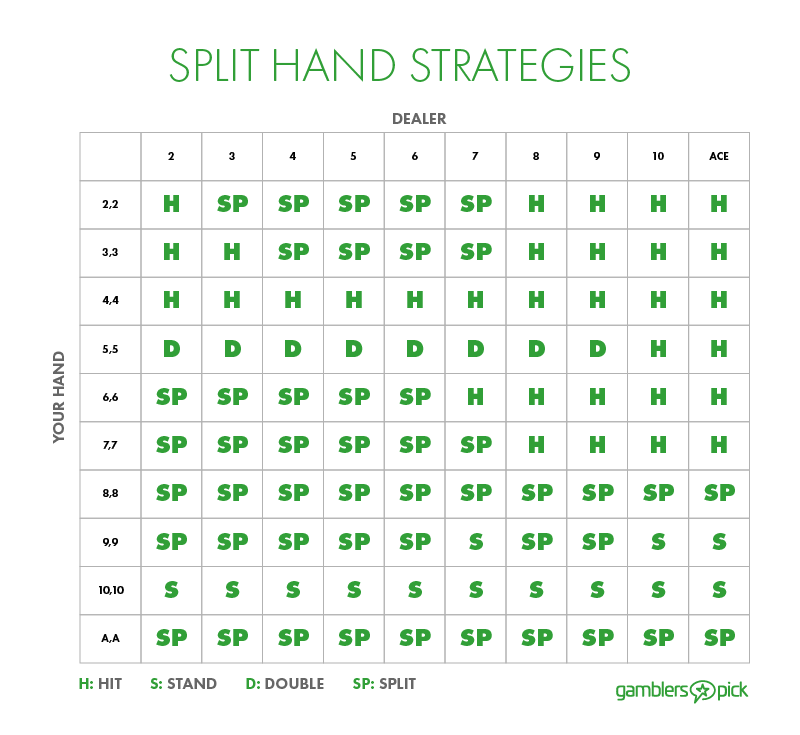
Other Tips
Trust & Correct Player Guide is our key


Transparency:
Providing clear guidelines helps players understand the rules, game mechanics, and odds, fostering trust in the casino's operations.


Fair Play:
A comprehensive player guide ensures that all games are fair and that players are aware of their rights, promoting a level playing field.


Responsible Gaming:
Emphasizing responsible gaming practices educates players about limits and tools available for managing their gambling behavior, enhancing player safety.


Secure Transactions:
A trustworthy platform outlines secure payment methods and data protection measures, reassuring players about their financial safety.


Customer Support:
Clear guidance on how to access support channels helps players resolve issues quickly, building confidence in the casino’s commitment to customer care.


Community Trust:
Establishing a reputation for transparency and fairness attracts more players, creating a loyal community that values integrity in online gambling.
Promoted Casinos
Pushed casinos are online gaming sites that are actively pushed and endorsed by many sources, including affiliates, influencers, and websites. These casinos are usually prominently included in lists and advertising because of their enticing promotions, great games, and dependable services.
How we review?
Discovering a reliable and entertaining platform in the constantly growing world of online casinos can be just as difficult as striking it rich. With so many choices out there, each offering a different combination of games, bonuses, and features, it's critical to have a trustworthy system in place for assessing these websites. Here's where we get involved. Our goal is to give our readers confidence and clarity. Our extensive evaluation procedure is intended to separate the good casinos from the bad ones. We examine every aspect, from customer service and security protocols to bonus diversity and casino quality.
-
Promotions & Bonus Offers
Alluring incentives and promos have the power to improve gameplay and create value. To find out how beneficial welcome incentives are to players, we offer a range of terms.
-
Client Assistance and Support
You can find email addresses for a certain online casino in our evaluations, giving you the chance to get in touch with them in case you need help from a specialist.
-
Features of Responsible Gambling
One important feature of a trustworthy online casino is responsible gaming. We examine the accessibility and efficacy of measures for responsible gambling, like deposit caps, reality checks, and self-exclusion, to help gamers keep control over their gaming behaviors.
-
Payment Methods
Payment choices are crucial in terms of convenience and variety for both deposits and withdrawals. We examine the accepted payment options offered by the casino to make sure customers enjoy a smooth financial transaction.

